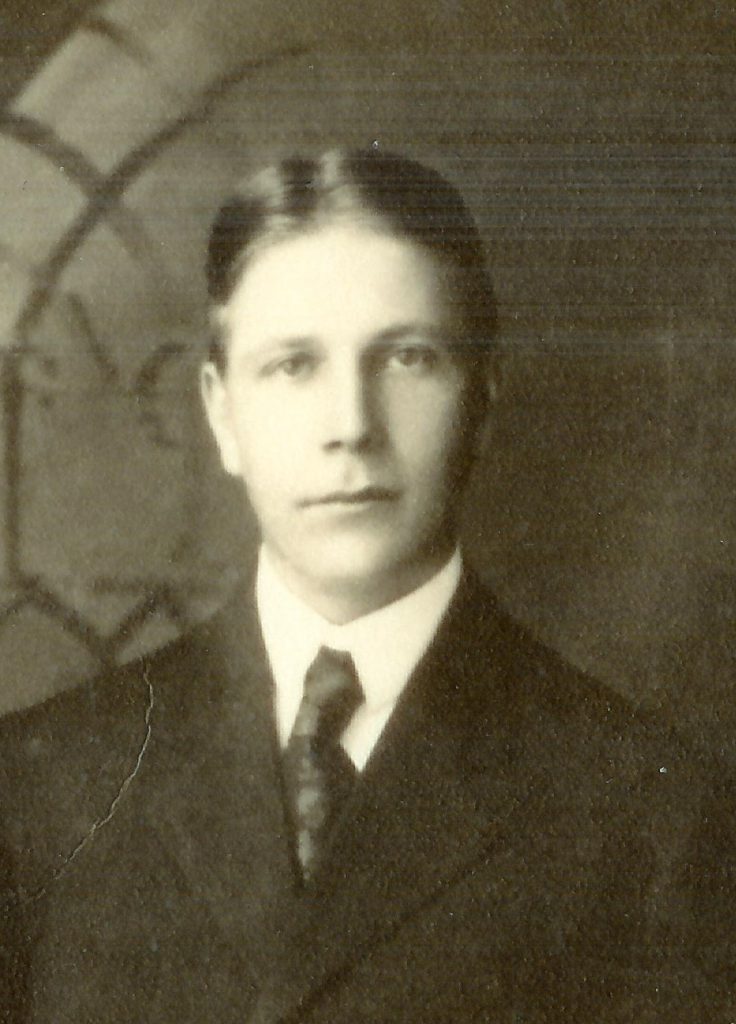
Rev. Dr. Obed Simon Johnson. Birth: Lanyon, Iowa, 5 May 1881. Died 12 October 1970 (age 89). Parents: John Peter Johnson and Johanna Dorothea. Siblings: Esther, Lizzie, Amy, Frank Isaac, Nellie. Marriage: Vida M. Lowrey, June 21, 1911, in Canton, China. Death and Interment: 12 October 1970.
Children: James Waldemar Johnson(1916-1987) and Johanna Dorothea Johnson Riegel (1921-2017).
Education: Tobin College, Fort Dodge, IA. Carleton College, Northfield, MN. A.B., 1902-1906. Oberlin College, B.Div., 1909. University of California-Berkeley, Ph.D., 1925.
Occupation: Missionary in China, 1909-1925 (14 years); Minister/ Chaplain, Professor of Chinese Language/History/Culture.
Languages: Fluent in Swedish and Chinese. Studied Greek, Latin, Hebrew, French and German.
Membership in The American Oriental Society (joined in 1930)
Teaching positions: Country teacher for “several years” in rural Iowa [see below]. Union Theological Seminary at Lingnan University in Guangzhou (Canton), China (1910s-1920s). University of California at Berkeley, 1924-1925. University of Utah, Salt Lake City, 1927-1928. Mills College, Oakland, CA, 1927-1928. Wabash College, Crawfordsville, IN, 1929-44. North Park College, Chicago, IL, 1944-1952.
“John Peter Johnson” [and his immediate family] by Obed Johnson. “Lost Grove Township, Webster County, 1869-1969,” page 85.
My parents, John Peter Johnson and Johanna Dorothea Burman, were born in Småland, Sweden. However they met for the first time in Altona, Illinois, where in due time they married. For the first few years my father farmed in that region. But when “the call of the West” became too strong to resist, they moved to Iowa where they purchased 160 acres in the southern part of Webster County. (This was in Dayton Township, just east of Lanyon.) Here they lived for many years and all but one or two of their six children were born here.
It was an almost exclusively Swedish settlement. I can think of but two “Yankee” families who lived in this so-called Lost Grove community and I believe that not infrequently they felt like strangers in a strange land.
My father and mother were good parents, good neighbors, and incidentally, they were charter members of the Lost Grove Mission Church.
There were six children. My oldest sister, Esther, was for a number of years a school teacher and at one time taught my home school. I quickly learned not to expect any special favors just because I was her younger brother. Later we moved to the farm a half mile east of the town where their son Oliver is living at present.
Elizabeth (or Lizzie) was my second sister. She became a skilled dress-maker and was also a very efficient housekeeper. She married John Lindgren [Frank’s older brother] and they lived on a farm near Paton.
My brother, Frank [known as “Frank I”], was number three on the list of children. He was one of the most kind-hearted persons I have ever met. At a suitable age he married Esther Carlson whose folks were prominent in the community. When my parents retired to “city life” in Lanyon, Frank stayed on the farm and “kept the home fires burning.”
My third sister was Amy. She was neither a school teacher nor a skilled dress-maker, but she certainly made herself useful in her home and community. With the hope that I shall not be misunderstood, I will say that her manner of life frequently reminded me of the saying, “Difficult things we perform promptly; the impossible takes a little longer.” Much of her energy she still retains at the advanced age of over ninety. Eventually she married Frank Lindgren, John Lindgren’s younger brother. They lived on a farm one mile south of Lanyon.
My youngest sister Nellie, by her industry and good cheer added much to our home and the community. She became the wife of Rev. Ernst Anderson, a graduate of North Park Theological Seminary. For a number of years she and her husband lived in Sweden where Ernst was the pastor of several Covenant churches.
I was the number 5 child in our family. Since at an early age it became clearly evident that I would never qualify as a successful farmer, due to the fact that I always carried a book in my pocket as I started the day’s work in the fields. The problem of my future occupation had to be faced. The visits of foreign missionaries to our church, such as Peter Watson from China and Adolph Lydell from Alaska, had kindled my interest in such work. Omitting details, after several years of study I found myself in the summer of 1909 China-bound, as a missionary of the Congregational church. My destination was the 2000-year-old city of Canton.
Among the missionaries already in the field was a talented Miss Vida Lowrey, whom I eventually married. For the next fourteen years we were privileged to work as missionaries in South China. All of our work was necessarily done in the Chinese language. Vida taught in the Ruth Norton school for girls and I taught in the Canton Theological Seminary and made periodic visits to the churches in the country districts…. [W]e returned permanently to America because of Vida’s losing struggle with malaria.
Since [then] I have taught such subjects as Chinese history, the Chinese language, and Chinese civilization in such colleges as the University of California, University of Utah, Wabash College, Mills College, and North Park College. I retired in 1952 and in 1964 my wife and I moved to the Bethany Covenant Home in Minneapolis.
My sisters Amy and Nellie have lived together for years in Fort Dodge and Nellie is still employed at Friendship Haven.
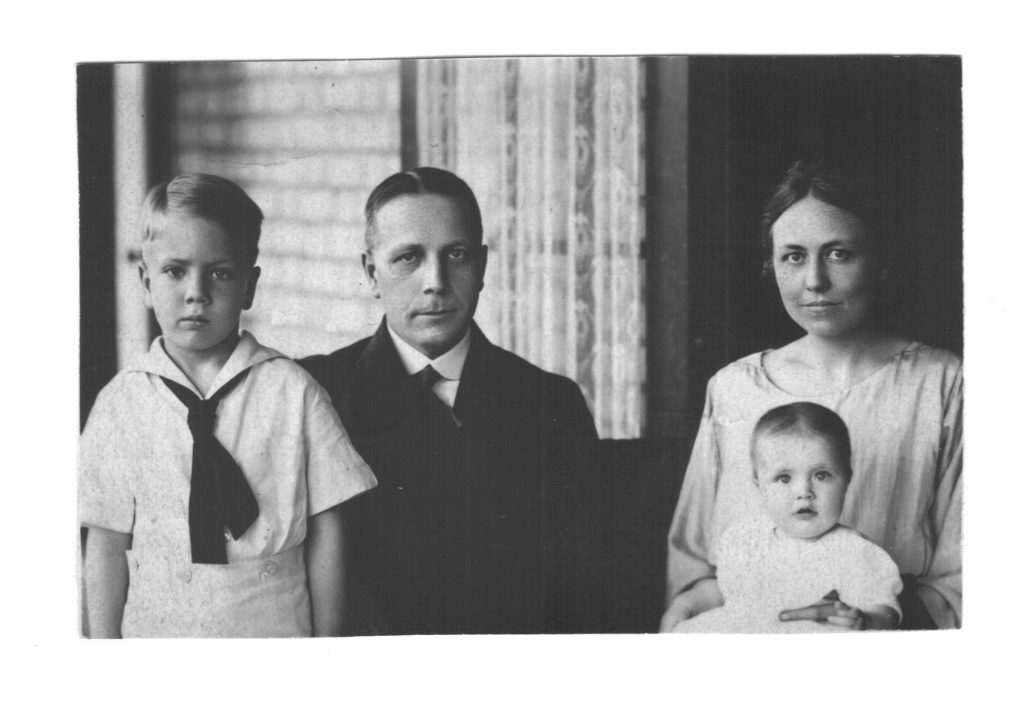
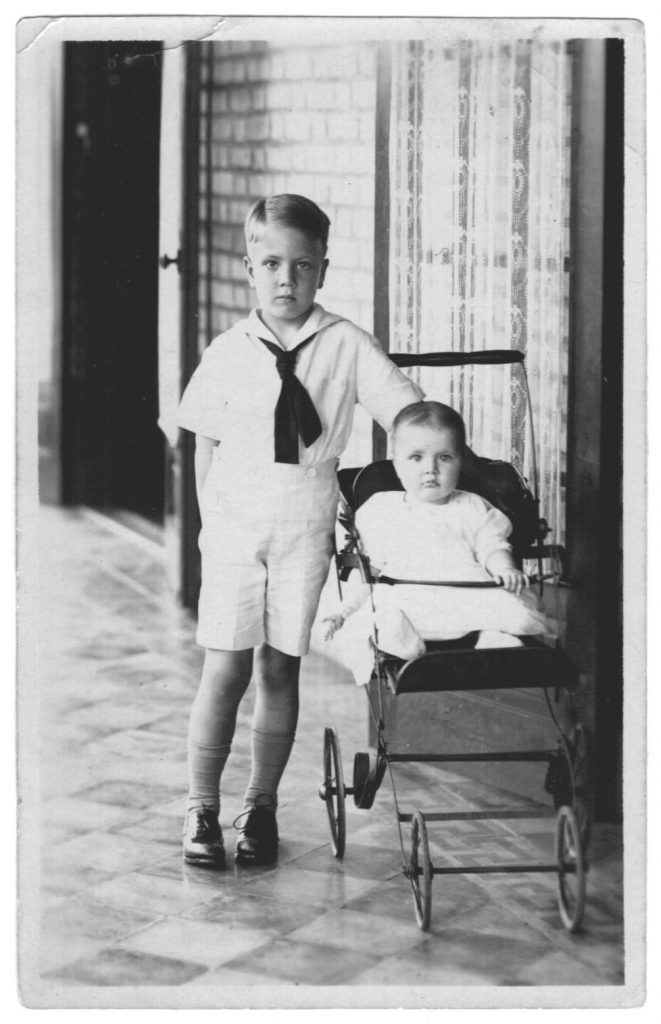
“A Country School Teacher,” written by Obed Simon Johnson. “Lost Grove Township, Webster County, 1869-1969,” page 83.
Since I evidently didn’t have what it takes to become a successful farmer, what was I to do? Temporarily I decided to become a country school teacher. Omitting details about the qualifications for such work, my first day of teaching country school had arrived. I was a scared young man, 18 years of age. About 35 pupils were on hand, some of them almost as old as I was.
My duties were to keep the school building clean — and warm in the winter time, to conduct classes in many subjects, to be able to maintain order, to be a helpful friend, and to join the children in their games at recess time.
I addition to my pupils, the kindhearted, red-whiskered chief director, Charley Dahl, was present. He stayed from nine until twelve o’clock. He was there from the best of motives, of course, to back me up just in case something might happen. But I also knew that he was, quite properly, taking note of my performance. As a matter of fact, I was more scared of him than of my pupils — some of them quite husky.
Fortunately the day came to a close without any serious crisis and I was allowed to return the next day and for the days that followed.
Probably my main reason for becoming a country school teacher was that it seemed to be the “road to riches.” My salary was $25 per month, and since I was living at home and helped with the chores mornings and evenings, my board and room cost me nothing.
My cousin, Nellie Main (later Mrs. Albert Youngdale), also taught country school. But her salary was $30 per month. I was, of course, tempted to be jealous, but I suppressed my feeling when I realized that her bigger salary was undoubtedly due to the fact that she was a better teacher than I was.
I will always be glad that I spent several years in teaching country schools. The boys and girls who were my pupils then are men and women now, who, with rare exception, are doing their duty to God and country. To meet and greet many of them from time to time, delights the soul and gives added meaning to life.
“How dear to my heart are the scenes of my childhood, When fond recollections present them to view.” [Note: This quote comes from a poem, “The Old Wooden Bucket,” which was set to music as a hymn.]
I shall always be grateful to God for the privilege of having lived for many years in a community where there is a spirit of friendliness and where reverence for God and His teachings is the general rule, with very few exceptions.
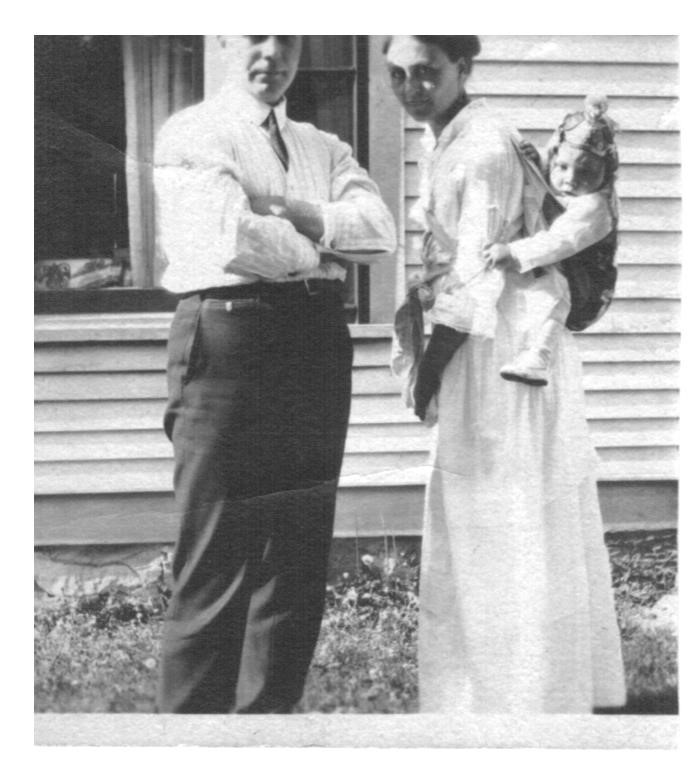
“Recollections of the Past: The Christmas Jul-otta,” by Obed Simon Johnson. “Lost Grove Township, 1869-1969,” page 74.
This was the most unusual church service of the whole year. It was scheduled to begin at five or five-thirty on Christmas morning.
If possible, the entire family attended. We children looked forward to that service with keen delight. There was no difficulty in getting us out of bed that morning. After breakfast we made our way out to the bob sled. The wagon box was provided with plenty of blankets to keep us warm. My father and my oldest sister brother sat on the spring seat in front to do the driving. The rest of us sat side by side in the wagon box.
On our way to church the jingling of the Swedish sleigh bells was sweet music to our ears. As we passed the farm homes we saw lighted candles in the windows in honor of Christmas. As we looked up at the bright stars in the sky we thought of the “Star of Bethlehem” which has become “the light of the ages.”
When we entered the church we saw a beautiful sight. There were two candles in each window, the lighted Christmas tree on the platform and Miss Anne Johnsn (later Mrs. C. J. Johnson) at the organ ready to play the Christmas hymns.
The first hymn was always the famous “All hail to Thee, O blessed morn.” All four verses wee sung in Swedish, of course. To arrive after this hymn was announced was regarded as a shameful thing. Then followed other appropriate hymns, Christmas poems, and Bible verses by the children, and a beautiful meditation by the pastor. At the conclusion, each child was presented with a sack of candy and a big red apple.
When we left the church for home, dawn was just breaking in the East. At home after inspecting our stockings for Christmas presents, a second breakfast, and the performance of the morning chores, we children had a chance to sleep. But sleep did not come quickly, for the memory of the most wonderful church service of the entire year occupied our minds. And we were already thinking with joy of the next Jul-otta service which would be due in just another year.
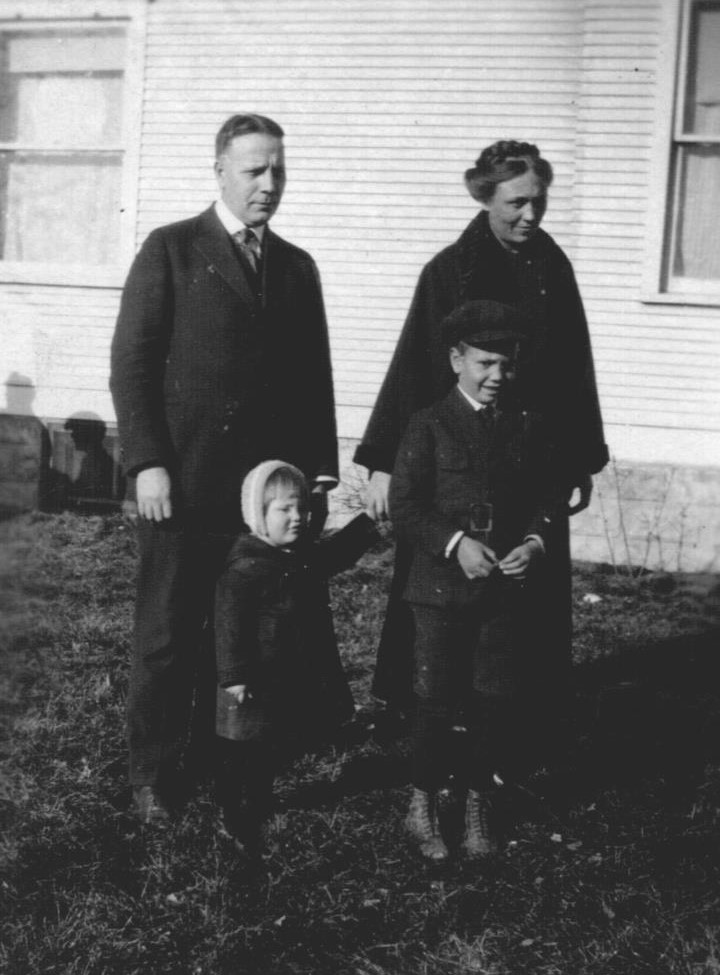
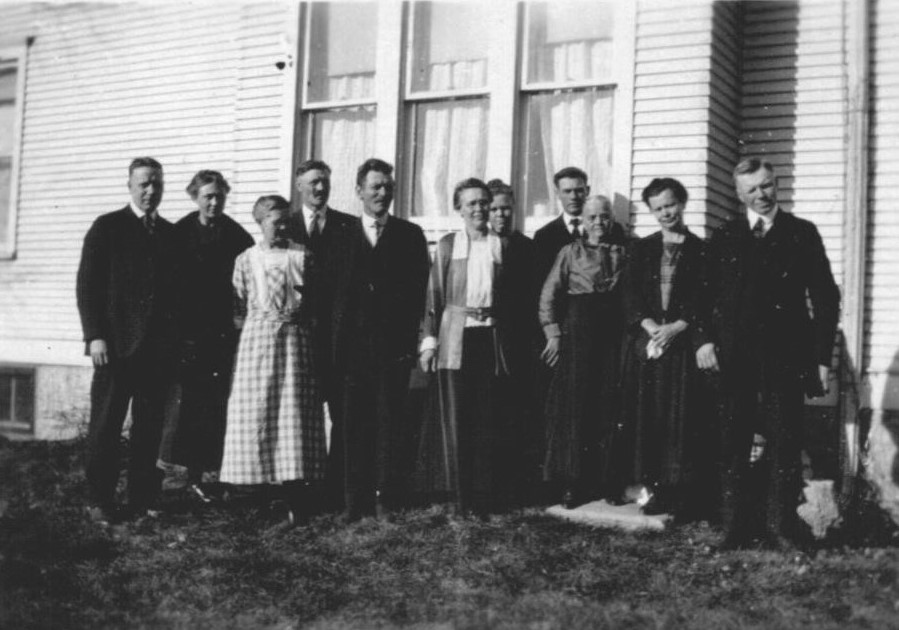
“Recollections of the Past: Reunions Among Relatives,” by Rev. Dr. Obed S. Johnson. “Lost Grove Township, 1869-1969,” page 74.
These reunions involving several — occasionally all — of the relative families were usually held in the home of some family on some Sunday after church. The main feature was a delicious giant-size meal (kalas) including the famous ost kaka [cottage cheese cake, with strawberries].
One hot July Sunday we held one such reunion at our home. The Burman, Erickson, and in-law families were our guests. Mother and my two older sisters had prepared a wonderful meal. Mother was indeed an excellent cook. A neighbor who had shared a noon meal in our home in thanking her (as was the custom) put it this way, “Thanks for the good food. It tasted like silk in the throat.”
When the guests were finally seated after the usual discussion over who should go first, my father as host, asked the blessing. I still remember his favorite prayer for such occasions: “O God, Thou hast provided simple but nourishing food for satisfying our hunger. Give us the grace to partake of these gifts with moderation and to the Glory and the Honor of Thy name. Amen.”
As soon as the prayer ended, the men in particular, lost no time in almost proving that the Chinese saying, “The stomach has limits,” is fiction instead of fact.
Afterwards, they went outside — waddling like ducks — and laid down in the shade of a big maple tree in the yard. They lay in a circle with their heads toward the center and with their tummies on the ground. They all did this except my Uncle Alfred, who stood erect. I had to tag along for “I didn’t want to miss anything.”
The one topic of conversation was the weather — and no one had a good word to say about it. The comments were such as “There is no sense to this weather,” and “Yesterday it was so hot I was not sure I would live through the day.” Strangely enough, in criticizing the weather, they had completely forgotten that they were finding fault with Him who had planned and was providing the weather for the good of all mankind.
During a brief lull in the conversation, Uncle Erickson, “a man of few words,” quietly spoke five words (three in Swedish) which completely stopped all criticism. He said, “The corn needs hot weather.” Probably not a single man present had less than 80 to 100 acres in corn. If the crop was to fail — what a tragedy!
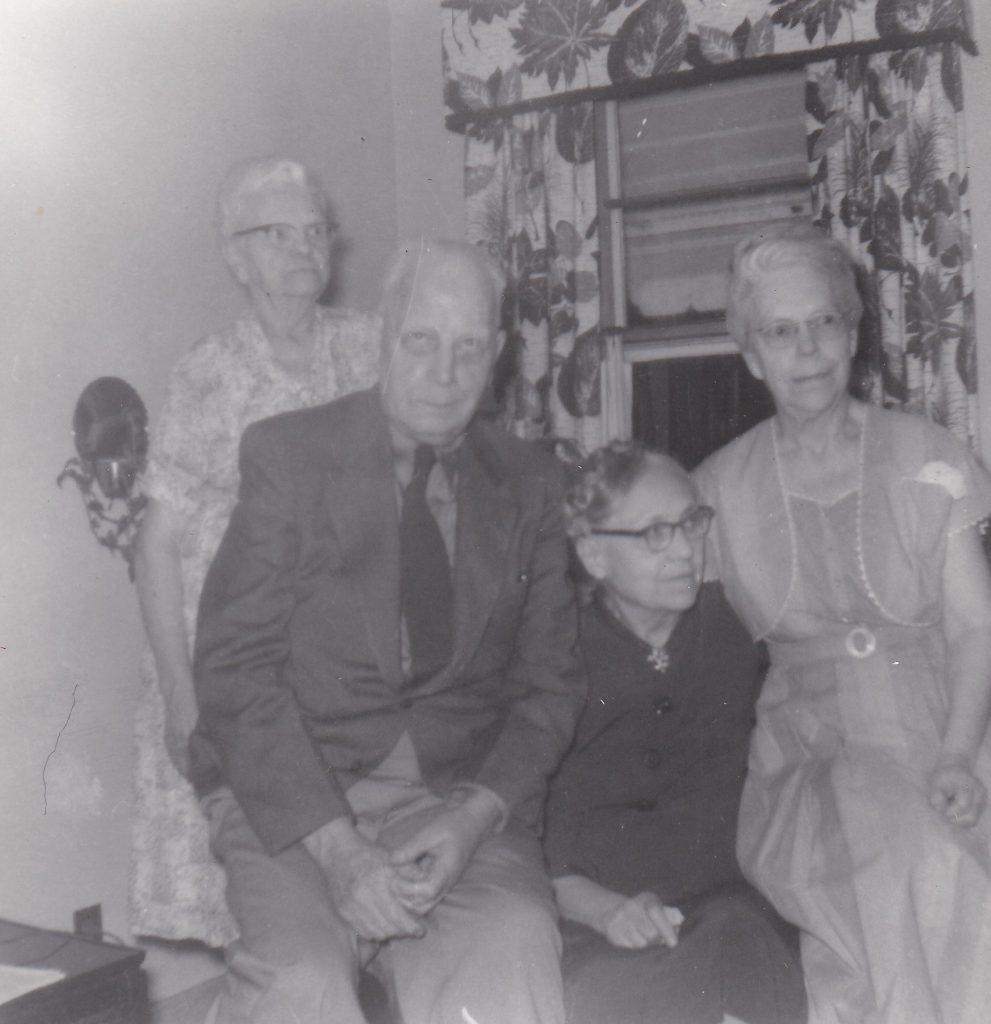
Biography:
Stories and Links:
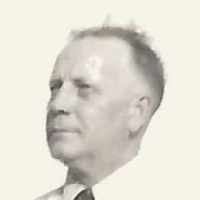
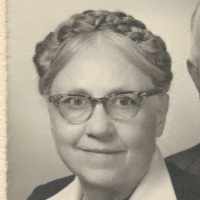
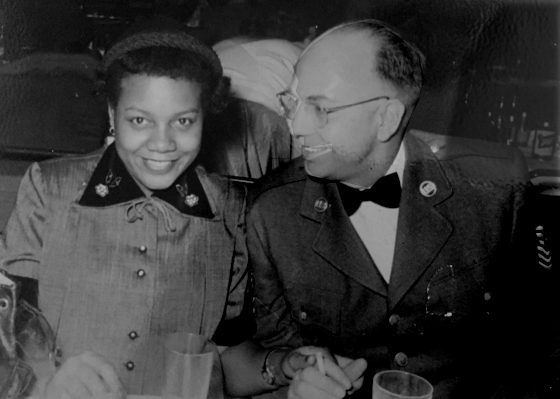
Obed and Vida’s son James Waldemar with his new wife, Betty Jean Kinniebree, in 1954. Both were serving in the U.S. Air Force and were married in Council Bluffs, Iowa. They were deployed to England, where their first son James William Johnson was born.

Obed and Vida’s daughter
Uncle Obed’s Opus: “A Study in Chinese Alchemy”
Obed Simon Johnson trained as a Swedish Covenant pastor. He was sponsored by the American Board of Commissioners for Foreign Missions (a Congregational organization) to go to China as a missionary. There he met another missionary, Vida Lowrey. They were married in Canton and raised two children, James Waldemar and Johanna Dorothea. They spent 14 years overseas, learning the language, history and customs of China. Vida caught malaria, so Obed brought the family to the States. He did two years of post-graduate work at the University of California at Berkeley.
Rev. Johnson taught the Chinese language, history and civilization while taking advanced classes on Asia. His adviser was Dr. E. T. Williams. Obed came from rural Iowa, Williams from rural Ohio. Williams had gone to China in 1887 as a missionary. After nine years, he became an interpreter to the American Consul General in Shanghai. He held other offices in the State Department before returning to the U.S. to teach at the University of California at Berkeley. The two men shared many common experiences.
In pursuing a Ph.D., Obed and Williams considered many dissertation subjects. Williams suggested Chinese alchemy, to which Obed agreed. They outlined six chapters: “Taoism,” “The Changing Concept of Early Taoist Teaching,” “The Alchemy of Prolonging Life,” “The Alchemy of Transmuting Metals,” “Later Development of Chinese Alchemy,” and “Alchemy East and West.” The dissertation was published as a book, “A Study in Chinese Alchemy,” in 1928. Obed hoped that his “study of Chinese alchemy may serve. . . to stimulate the interest aroused in Chinese Culture. . . and to add a modest contribution to the subject at hand. . . .”
An evaluation of Obed’s book is found in Dr. Carmen Lee’s dissertation, “A Bibliographical Study of Western Publications on Traditional Chinese Science (1800-1985).” A German ethnographer wrote a scathing review: “. . . Johnson’s book ‘lacks depth, viewpoint, method and criticism. It hardly contains any new facts, no clear exposition of Chinese alchemy, a heavy excess of baggage of irrelevant matter, and a strong dose of unsound speculations. . . .’ But another reviewer said, “After Johnson, things were never quite the same. His work directly stimulated Arthur Waley [a noted translator of Chinese literature]. . . to make several contributions which raised the subject to a previously unattained level of scholarship. It also obliged the great synthesizers to take China seriously.”
Interviews with Joseph Campbell were popularized by Bill Moyers on the PBS Series, “The Power of Myth.” In “The Hero with a Thousand Faces,” Campbell quoted Obed’s own translation for a Chinese “recipe” for immortality: “Take three pounds of genuine cinnabar and one pound of white honey. Mix them. Dry the mixture in the sun. Then roast it over a fire until it can be shaped into pills. Take ten pills the size of a hemp seed every morning. Inside of a year, white hair will turn black, decayed teeth will grow again, and the body will become sleek and glistening. If an old man takes this medicine for a long time, he will develop into a young man. The one who takes it constantly will enjoy eternal life, and will not die.” [“A Study of Chinese Alchemy,” p. 63.]
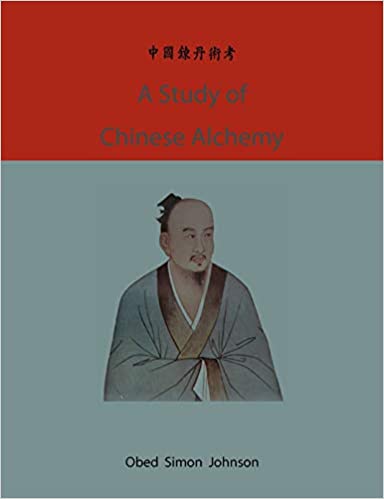
Dr. Jay Lindgren, Denver, has developed a presentation linking the professional scholar work of Obed Simon Johnson with the Origin Stories of the Bible and Ancient scrolls and tablets. To view; please click the play icon in the image below.
